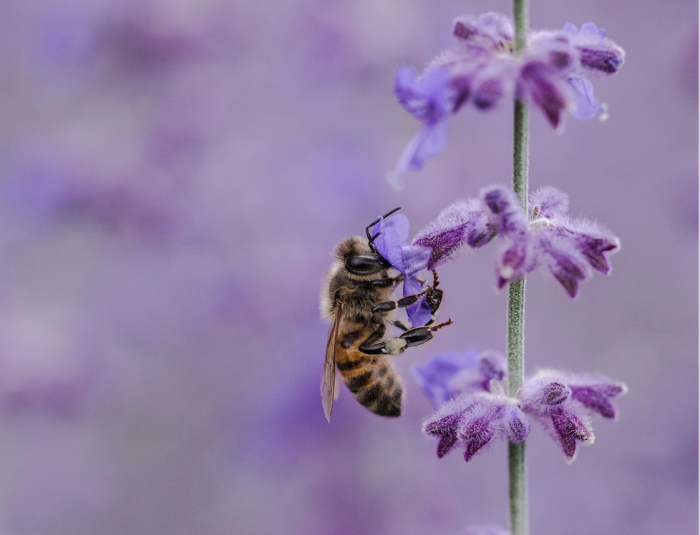Wildlife has suffered for many years as a result of human disturbance.
Since humans have been in lockdown, we have seen social media light up with videos of wildlife thriving in the deserted streets of otherwise busy and bustling areas. From dancing mice in the London Underground to wild boars in the center of Barcelona, animals are experiencing a well-needed break from the hectic world we live in.
Bees are one of the animals who appear to be reaping the benefits of our losses. Scientific studies are showing there is a significant reduction in air pollution due to less cars being on the road. This is not only great news for us, but it is great news for bees as well.
According to BBC future, the bee population has been declining rapidly as a result of pollution, habitat loss, and the use of pesticides. With less cars on the road, there are less fumes in the air. The fumes are responsible for polluting the smell of flowers and pollen that bees love so much. When the smell is weakened, bees have to search even harder for food, and they end up flying even further away from their nests to find it. With drops in air pollution, bees are able to do shorter, and more profitable journeys.
Not only that, but less cars on the road means traveling to and from work is now much safer for bees. A 2015 study by Canadian researchers estimated that 24 billion bees, and wasps are killed by vehicles on roads across North America every year. With less cars on the road, bees are significantly less likely to get involved in an accident.
The world is becoming a safer and better place for bees, which means now is a better time than ever for planting pollinator friendly blooms. Bees will be looking for food sources over the coming months, and we have a chance to redeem the bee population, and bring the numbers back up. As we know, a world without bees would look very different. They pollinate a third of the food we eat, and contribute billions of pounds to our global economy.
The world is big, and the problems that come with it are equally as big. One thing this pandemic has taught me is that the smallest actions can go a long way toward solving the biggest problems. You may feel like your actions are insignificant, so why do them anyway? However, your actions are part of a bigger picture, and if everybody did a small action to help, we would be creating a brighter world. If everybody planted one small seed, you could save one small bee, and in turn help to save our one big planet.
There are many easy ways you can support bees and give back to the environment:
1. Don’t cut your grass. Mowing your garden is not only a chore, but also takes away vital food for bees. UK Charity Plantlife estimates that it takes five daisies, two dandelions, and six buttercups to provide enough nectar for just one honeybee a day. If you have ever wanted a reason to get out of mowing the grass, this is a perfect one!
2. Stop using pesticides in your garden. Pesticides are a leading factor in the declining population of bees. They cause brain damage, which results in them getting lost and failing to navigate their way back to their nests.
3. Plant seeds for bees. Ninety-seven percent of wildflower meadows have been lost in the UK since the 1930s, making many bees both homeless and hungry. With the spare time most of us have in lockdown, it’s a perfect opportunity to pick up a new hobby and plant some flowers. Not only does planting flowers brighten up your garden and help feed bees and keep them alive, but gardening is a great way to reducing anxiety and improving mental well-being.
~


 Share on bsky
Share on bsky





Read 1 comment and reply